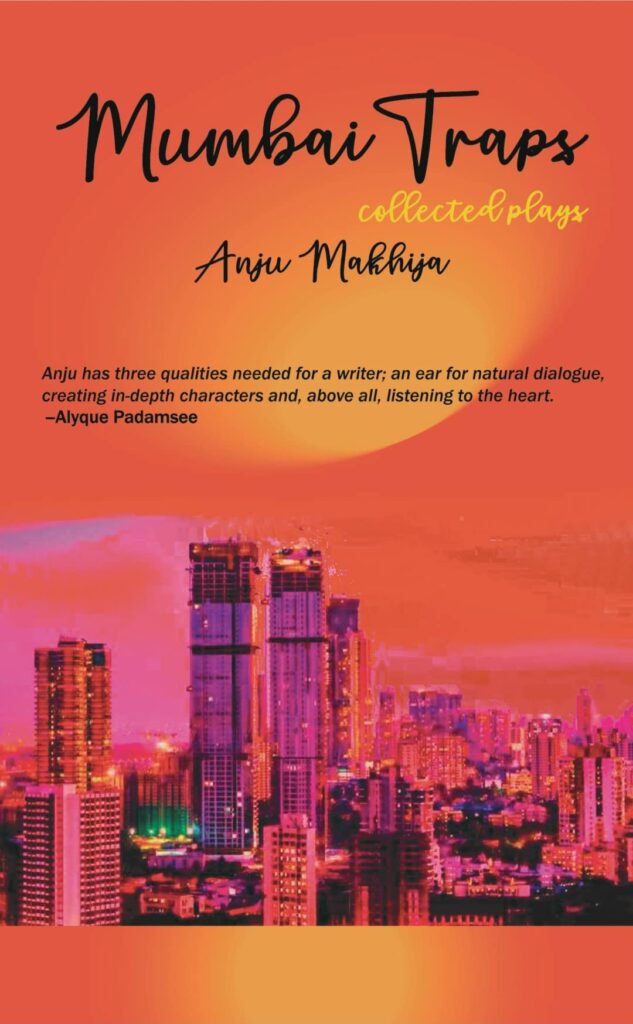
Anju Makhija
Dhauli Books (₹595)
by Rochelle Potkar
Readers familiar with Anju Makhija’s crisp and sharply-observant poetry will find that as a playwright, she is gumptious, experimental, piercing, and clutter-breaking. In Mumbai Traps: Collected Plays, her vision is that of a director, and her characters shine against the backdrop of India’s largest city, with all its comic timing and strobe light effects. Makhija’s brazenly bizarre constructs and concepts, tongue-in-cheek dialogue, and exaggerated storylines lend a tongue-in-jowl tone to the slanted premises throughout these six plays, ruffling notions of what is normal.
In The Last Train, for example, as we wait for the train to reach its destination, the play’s action unfurls in the unmoving suspended state of a still night. Political party workers search for the missing head of their leader, and within the crowded train compartment, characters speak of life and death. The writing, by lending irrealism, evokes smells of a rag-picker’s sack and a severed head in it. Makhija doesn’t fear exploring each character’s mental state in all its refracted directions, from existentialism to nihilism.
Real estate is another leitmotif that doesn’t escape Makhija’s gaze, sometimes forming a pivotal issue, and other times lingering on the fringes of the story. In If Wishes were Horses, a woman’s loyalty to her family keeps fluctuating as she supports the flower-seller to whom her mother willed their apartment, even as the flower-seller’s husband nurses a pipe dream on selling off that opulent inheritance. In Cold Gold, two women living in a high-rise separately conspire to rob looted gold from their new maid, and a police officer and goon are trapped in a crisscrossing of efforts.
Makhija excels at interspersing philosophical reflections, haphazard brainstorming, and spiritual ruminations. In Off The Hook—a musical—a man metamorphosed from a fish wants to belong, but eventually rejects a materialistic life and returns to the sea. In Meeting with Lord Yama, a woman encounters the god of death, flipping the coin of inquiry back and forth between the contexts of her relationship chaos. And in Now she says she’s God, we see the whimsical existence and exiting of a deity-like character.
If one is not used to reading plays on the page, they can come across as staccato, but once that format issue is overcome, they make for good reading in the hands of a multi-faceted artist like Makhija. Allow for the amphitheatre of your mind to light up and shadow down as her characters speak in intonations that reverberate in your cochlea.
Rain Taxi Online Edition Fall 2022 | © Rain Taxi, Inc. 2022
